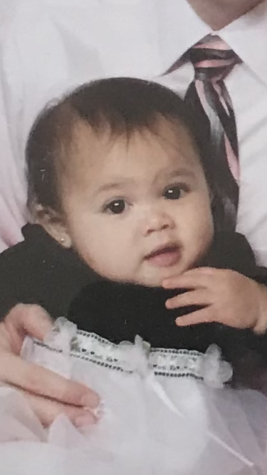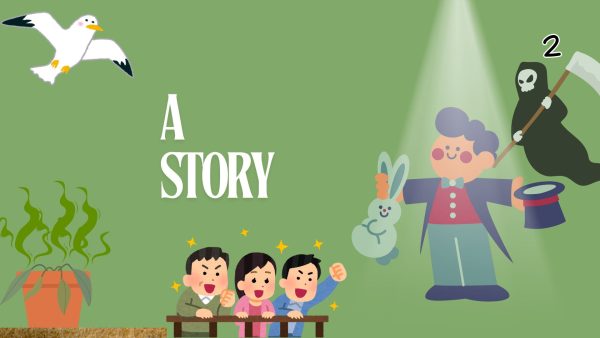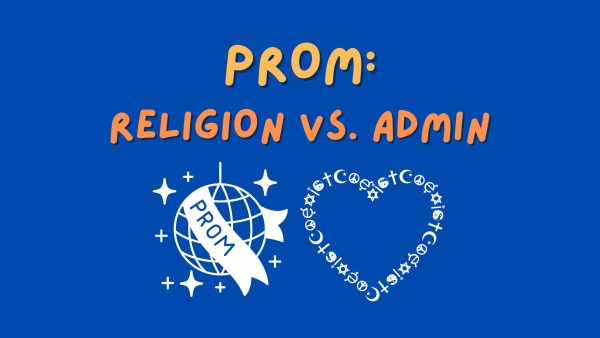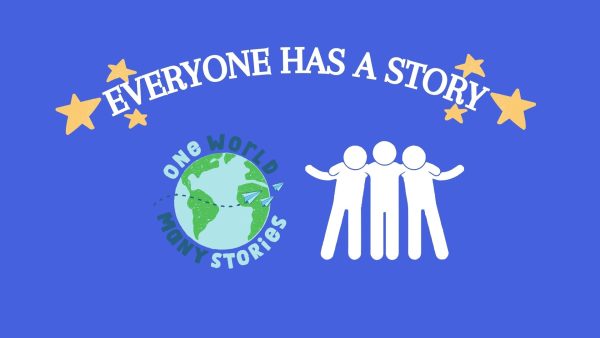The luxury of being interesting
Senior Andrea “AJ” Gordon reflects on how her white father has helped her with showing “personality” in college applications.
As colleges search for new ways to assess students beyond just grades and test scores, they’ve begun requesting that students show their “personality” on applications and in interviews. Yet, there is a misconception people hold regarding how personality develops and how well colleges can detect it.
If we define “personality” as the culmination of someone’s interests, hobbies, the activities they participate in, as well as their ability to communicate their passions, I’d (begrudgingly) have to attribute much of my personality to my dad and his influence on me growing up.
I’ve been largely affected by the things I was exposed to when I was younger, a result of my dad’s desire to expose me to as much as possible. While I truly do not want to discredit his efforts, I often wonder how his status contributed to his ability to expose me to a multitude of activities.
How did our financial stability impact our family’s ability to go on road trips, stay at state parks, visit museums, and visit national monuments even outside of the Washington D.C. region? How did my dad growing up in the United States and in Montgomery County contribute to both his knowledge of things to do in our area as well his confidence to find new things? If he hadn’t grown up in Gaithersburg, would he have known all the best places to go sledding, ice-skating on a lake (safely), hiking, camping, biking, sightseeing, etc?
I also wondered how his identity as a white man contributed to his confidence in engaging with the outdoors and our community. When he drags me along as he endeavors in his favorite hobby of discovering local history, I’ve never felt particularly unsafe looking for historical homes, helping him search for old graveyards buried under new housing developments, or identifying lines of trees that used to be roads.
I always took for granted his/our ability to explore new places within the county without fear of being suspected of criminal activity or not being able to find our way back. Growing up around other kids of non-white parents, along with having a non-white immigrant mother, I had always labeled my dad as unique or even weird in his dedication to diving into his community and its history. Now, I wondered if other parents would do the same if they had the confidence or security to do so.
It’s important to point out that many people have developed a sense of wonderment and desire to explore whether or not their parents and environment fostered such curiosity. In my personal experience, however, the things that contributed to my outlook on the world have a significant relation to my socioeconomic status and my father’s status as a white man who grew up in the US. To regard my personality as a testament to my character outside of the privileges I’ve been provided would be missing the bigger picture.
Additionally, when it comes to expressing my personality through writing and conversation, the hour-long conversations with my dad after dinner or in the car about anything from religion, music, philosophy, theology, race, gender, literature, pop culture, art, and county issues have forced me to articulate my passions and opinions that translated into college essays and interviews.
My dad did make it a point during my childhood to initiate such discussion. He was deliberate about making me restart stories when I missed major details, asking me to rephrase ideas that made perfect sense to me but confused everyone else (there were many), and bringing up different sides to the points I brought up, making me pinpoint examples to broad assumptions.
During political conversations with other adults, no one forced my dad to turn to my eight-year-old self ask, “Anything to add?” with the intent of receiving a genuine response. Yet, I wondered how much of his ability to be both a constructive critic and sounding board for many of my theories was developed by his higher education.
How much has my own ability to utilize the English language as a tool for self-expression been affected by both his and my mother’s time in English-speaking academic institutions? Would he be able to offer such a poignant analysis if he wasn’t an English major? Would my dad know how to hold such complex discussions and the extent to which these discussions would benefit me in navigating college-level courses if he himself did not attend college and graduate school?
I do not think there’s a clear answer to these questions. I know plenty of people without white, English-speaking parents with college degrees who are also incredible at expressing their passions through their speech and language. Still, another aspect of my dad being who he is has particularly benefited me in developing a sense of interpersonal connection with individuals representing different universities.
I began thinking about this during my alumni interview with a prestigious liberal arts college. Alumni interviews are relatively casual affairs with limited influence over admittance decisions but they emulate how this concept of “personality” is translated from a university perspective.
In my humble opinion, the interview went really well. Despite my joy, I couldn’t help but notice a shift in how I presented myself even beyond my professionalism given the formal setting. I later realized that I had completely revised my approach to the conversation after deducing that my interviewer was indeed a middle-aged white with a liberal arts degree from a small school.
Banking on the similarities between the interviewer and my dad, I began juxtaposing ideas in a way I knew would interest him, portraying a completely different side of my sense of humor reserved for joking with my dad, and using an entirely different set of vocabulary than my day-to-day. Most days I regret when my friends tease me for being a clone of my dad (outside of appearances…) but in that hour session, I exploited those similarities as a means of connecting with the interviewer.
I also couldn’t help but ponder on all the personalities that would not translate well in this setting with this interviewer. I considered all the people I knew who were funny, bright, curious, interested, and driven, whose talent and character would not breach the cultural differences between themselves and this interviewer.
There is a tendency to approach personality as its own entity; as if it can be removed from a person’s socioeconomic status and culture as a true testament to their character. It’s nice to think that personality and experience can be fostered equally within different environments and upbringings. It’s nice to believe that personality is universal, that it has no language, and that its appreciation is not attached to a culture, demographic, or context.
Colleges should still consider personality within their decisions, especially to create a well-rounded student body. But there must be a wariness in their definition of personality, in their assessment of character, and in their instinct to use personality to remove applicants from the many other factors at play within a student’s story.
P.S. If you think my dad’s cool, my mom’s even cooler.
Your donation will support the student journalists of Watkins Mill High School. Your contribution will allow us to purchase equipment and cover our annual website hosting costs.

Andrea “AJ” Gordon is a senior at Watkins Mill High School and Opinion Managing Editor for The Current. She is an IB Diploma student and is a part...












Don • Mar 6, 2023 at 11:03 am
AJ,
Thanks for sharing your experiences and wonderful, insightful perspective! It was very interesting and informative. Your writing shows a wisdom well beyond your age.